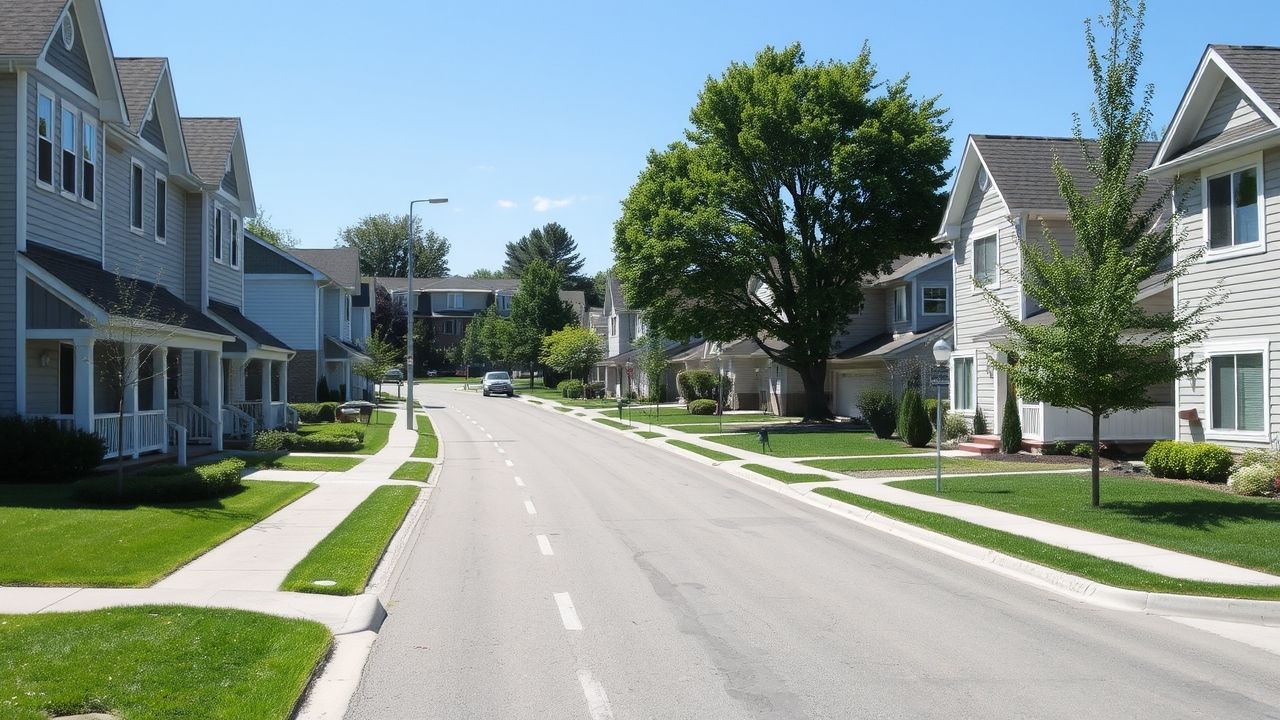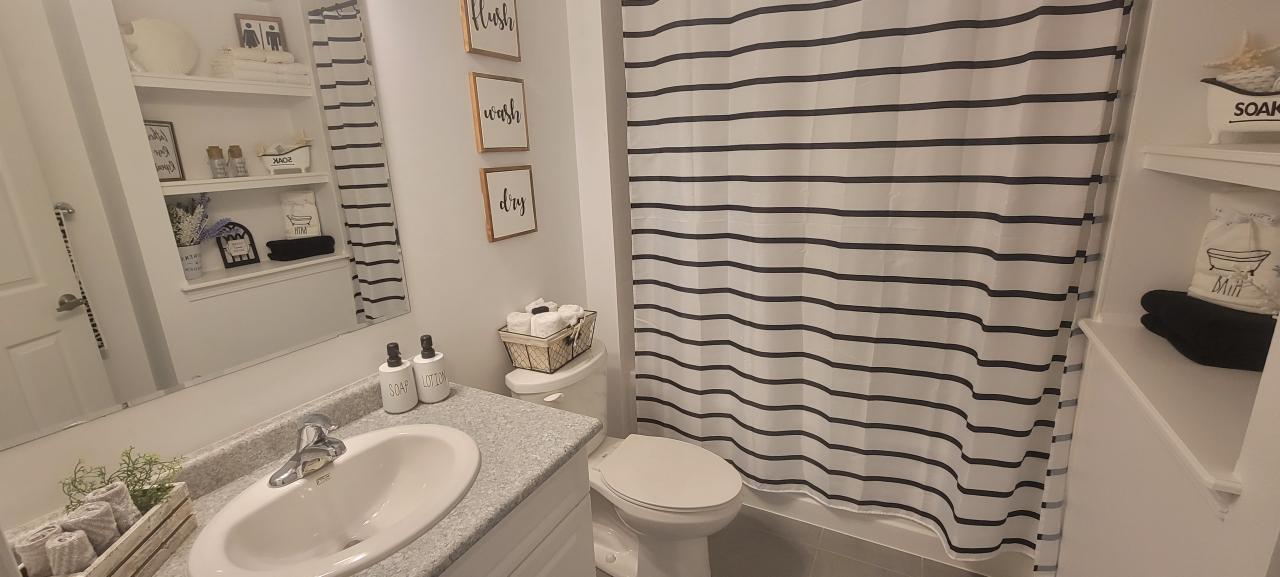Are you worried your house closing day might get pushed back?
Buying a house is super exciting! You found the perfect place in Milton, Mississauga, Georgetown, Guelph, or another great spot in Ontario. You imagine getting the keys and moving in. But sometimes, things happen that make closing day later than planned. These are called closing delays in real estate.
Waiting longer costs you time and money. It can be stressful! But don’t worry. This guide will show you how to help make sure your closing day happens right on time. We’ll make it easy to understand, like talking to a friend.
What is a Closing Day Anyway?
Think of closing day as the finish line for buying your house. It’s the day when:
- You sign all the final papers.
- The money gets officially sent to the seller.
- You get the keys to your new home!
It’s a big day! Usually, it takes about 30 to 60 days from when your offer is accepted until closing day happens. But things can slow it down.
Why Do Closings Get Delayed? (Potential Problems at Closing)
Lots of little things can cause a delay. Knowing about them helps you watch out for them. Let’s look at the most common reasons.
1. Mortgage Funding Issues
This is a big one. Getting the money (the mortgage loan) from the bank or lender is super important. If there’s a problem here, everything stops.
What can go wrong?
- Your Money Situation Changes: Did you change jobs? Buy a new car? Take out another big loan? Banks check your money situation right before closing. Big changes can make them nervous and delay the loan.
- Tip: Don’t make big money changes between getting pre-approved for your loan and closing day. Keep your job, don’t buy big things on credit, and pay your bills on time.
- Missing Papers: The bank needs lots of papers from you. Things like pay stubs, bank statements, and tax forms. If you forget something or take too long to send it, the bank has to wait.
- Tip: Make a checklist of everything the bank asks for. Send it all as fast as you can. Ask your mortgage helper if you’re unsure about anything.
- Bank is Super Busy: Sometimes, lots of people are buying houses at once (like in busy markets around the GTA!). This can make banks take longer to check everything.
- Tip: Start your mortgage application early. Stay in touch with your mortgage helper often to see how things are going.
What You Can Do About Mortgage Funding Issues:
- Get Pre-Approved: Before you even look for houses, talk to a bank or mortgage helper. Get pre-approved for a loan. This means they checked your money situation already and told you how much you can likely borrow. It speeds things up later.
- Be Honest: Tell your mortgage helper everything about your money situation upfront.
- Send Papers Fast: When they ask for documents, send them right away.
- Don’t Change Things: Keep your job and credit the same until after you get the keys.
- Ask Questions: If you don’t understand something, ask!
“Getting your mortgage sorted out early and keeping your finances steady is the number one way buyers can prevent closing delays.” – Local Mortgage Advisor
2. Title Issues During Closing
The ‘title’ is like the official paper that says who owns the house. Before you buy it, a special company (the title company) or your lawyer checks to make sure the seller really owns it and there are no hidden problems.
What kind of problems?
- Liens: This means someone else says the seller owes them money, and they’ve put a claim on the house. Like unpaid taxes or bills from work done on the house.
- Deed Mistakes: The deed is the paper that transfers the house. Sometimes there are mistakes in names or descriptions from long ago.
- Someone Else Claims Ownership: Very rarely, someone else might pop up and say they actually own part of the house (like a long-lost relative).
- Boundary Issues: Maybe the fence is in the wrong place, or part of the driveway is actually on the neighbour’s land.
Finding these problems can take time to fix, causing seller delays in closing (if it’s their problem to fix) or just general delays while everyone figures it out.
What You Can Do About Title Issues:
- Title Search Happens Early: Your lawyer will order a ‘title search’ soon after your offer is accepted. This is the check for problems.
- Title Insurance: This is like protection you buy. If a hidden title problem pops up after you buy the house, title insurance helps fix it and cover the costs. Your lender will require it, and you should get owner’s title insurance too.
- Ask Your Lawyer: Your real estate lawyer is key here. They check the title search report and tell you if there are problems. They help figure out how to fix them.
3. Problems with the Home Inspection
Before you buy, you usually hire a home inspector. This person checks the house from top to bottom – the roof, the heating, the plumbing, the electricity, the foundation.
What can cause delays here?
- Big Problems Found: The inspector might find something serious, like a leaky roof, old wiring that’s not safe, or cracks in the foundation. Finding big problems can pause everything.
- Negotiating Repairs: If problems are found, you (the buyer) might ask the seller to fix them before closing or give you money to fix them later. Talking back and forth about this takes time.
- Getting Repair Quotes: If you need to figure out how much repairs will cost, you might need to get quotes from repair people (like roofers or plumbers). This adds time.
What You Can Do About Inspection Issues:
- Schedule the Inspection Fast: Get the inspection done as soon as possible after your offer is accepted. This gives you more time to deal with any surprises.
- Go to the Inspection: Walk around with the inspector. They can show you things and explain them. You’ll understand the report better.
- Be Realistic: Almost every house (even new ones) has some small issues. Focus on the big, important stuff.
- Negotiate Quickly: Decide what repairs are most important to you. Talk with your real estate agent about the best way to ask the seller. Try to agree quickly.
4. Appraisal Issues
The bank lending you money wants to make sure the house is worth the price you agreed to pay. They send their own person, an appraiser, to check the house and compare it to other homes sold nearby.
What can cause delays?
- Appraisal is Too Low: Sometimes, the appraiser decides the house isn’t worth the price you offered. This is a big problem called a ‘low appraisal’. The bank usually won’t lend you more money than the house is worth.
- Appraiser is Slow: Like banks, appraisers can get very busy, especially in hot markets like Mississauga or Guelph. It might take time just to get the appraisal scheduled and finished.
- Repairs Needed for Loan: Sometimes the appraiser says certain repairs must be done before the bank will give the loan (like fixing a broken step or peeling paint for some types of loans).
What You Can Do About Appraisal Issues:
- Your Agent Helps: Your real estate agent helps set the price when you make an offer. They look at similar homes to suggest a fair price, which helps avoid low appraisals.
- What if it’s Low? If the appraisal is low, you have a few options (talk to your agent!):
- You might be able to negotiate a lower price with the seller.
- You might need to pay the difference in cash.
- You might challenge the appraisal (this is hard but sometimes possible).
- You might have to walk away from the deal if your offer included an appraisal condition.
- Schedule Early: The bank usually orders the appraisal. Encourage them to do it quickly.
5. Buyer Delays in Closing
Sometimes, the delay comes from the buyer’s side (that’s you!).
Common Buyer Delays:
- Not Having Funds Ready: You need money for the down payment and closing costs (like lawyer fees, land transfer tax). This money needs to be ready and easily available a few days before closing. Waiting for funds to transfer or selling stocks at the last minute can cause delays.
- Tip: Talk to your lawyer and bank way before closing day. Find out exactly how much money you need and when. Get the money into the right bank account early.
- Final Walk-Through Problems: Right before closing (usually the day before or day of), you get to walk through the house one last time. You check that the seller moved out, didn’t damage anything moving, and made any agreed-upon repairs. If you find a new problem (like a hole in the wall that wasn’t there before), it can delay closing while you sort it out.
- Tip: Do the walk-through carefully. Bring your purchase agreement to check that items included in the sale are still there and agreed repairs are done.
- Insurance Issues: You need home insurance starting on closing day. If you leave getting insurance until the last minute and run into problems, it can delay things.
- Tip: Shop for and set up your home insurance well before closing day. Your lender will need proof of insurance.
6. Seller Delays in Closing
The seller can also cause delays.
Common Seller Delays:
- Not Moving Out on Time: The seller needs to be completely moved out before you take ownership.
- Not Making Repairs: If the seller agreed to fix things but didn’t finish the work on time.
- Missing Paperwork: Sometimes the seller needs to provide certain documents, and they might be slow.
- Title Problems (Their Side): As mentioned before, liens or other title issues are often the seller’s responsibility to clear up.
What You Can Do About Seller Delays:
- Clear Agreement: Make sure your purchase agreement clearly states the closing date, what condition the house should be in, and any repairs the seller must do.
- Communication: Your real estate agent and lawyer will communicate with the seller’s side to keep things on track.
- Holdbacks: Sometimes, if repairs aren’t done, your lawyer might arrange to ‘hold back’ some of the seller’s money until the work is finished after closing.
Consequences of Closing Delays
Okay, so the closing is late. What happens now? It can cause a chain reaction of problems:
- Extra Costs: You might have to pay for extra days in your current rental, storage for your stuff, or fees for changing your moving truck booking. Your mortgage rate lock might expire, meaning you could get a higher interest rate!
- Lost Rate Lock: Banks promise you a certain interest rate for a limited time (like 60 or 90 days). If the closing takes too long, that promise might run out, and rates might have gone up.
- Contract Issues: Your purchase agreement is a legal contract with a closing date. If one side causes the delay, they might be breaking the contract. This can lead to losing your deposit or even getting sued (this is serious stuff!).
- Moving Day Chaos: Your movers are booked, maybe you took time off work. A delay messes up all your plans.
- Stress! It’s just plain stressful waiting and not knowing when you’ll finally get your keys.

How to Make Sure Closing Goes Smoothly (Ensuring a Smooth Closing)
You can’t control everything, but you can do a LOT to help avoid delays. Think of it like getting ready for a big school project – preparation is key!
1. Start Everything Early
Don’t wait! As soon as your offer is accepted:
- Apply for your mortgage formally (even if pre-approved).
- Hire a real estate lawyer you trust.
- Schedule the home inspection.
- Start gathering your documents for the lender.
- Get quotes for home insurance.
The earlier you start, the more time you have to fix any problems that pop up.
2. Build a Good Team
Buying a house is a team sport. You need good players:
- Your Real Estate Agent: Choose an agent who knows the local market (like Milton, Mississauga, Georgetown, Guelph) and has experience helping buyers avoid problems. They guide you, negotiate for you, and connect you with other pros.
- Your Mortgage Broker/Banker: Find someone helpful, who explains things clearly and answers your questions quickly.
- Your Real Estate Lawyer: They handle the legal stuff, check the title, register the deed, and manage the money transfer on closing day. Choose one who specializes in real estate.
- Your Home Inspector: Pick someone thorough and experienced.
“Having an experienced team – agent, lawyer, mortgage broker – who communicate well is crucial for navigating the complexities of a real estate transaction in the busy GTA market.” – Experienced GTA Real Estate Lawyer
3. Stay Organized
- Keep a File: Have a folder (physical or digital) for all house-related papers.
- Make a Checklist: Write down all the things you need to do and by when.
- Keep Contact Info Handy: Have the names, emails, and phone numbers for your agent, lawyer, mortgage person, and inspector.
4. Communication During Closing Process is Key!
Talk, talk, talk!
- Talk to Your Lender: Ask how the loan approval is going. See if they need anything else from you.
- Talk to Your Lawyer: Check if the title search is done. Ask about closing costs. Make sure they have everything they need.
- Talk to Your Agent: Keep them updated. Ask them to check in with the seller’s agent.
Don’t be afraid to ask questions or nudge people politely if you haven’t heard back. Good communication during closing process helps catch problems early.
5. Get Your Money Ready
- Know the Costs: Your lawyer will give you a final statement showing exactly how much money you need for the down payment and closing costs (lawyer fees, land transfer tax, etc.).
- Have Funds Accessible: Make sure this money is in a bank account where you can easily get it (usually via a bank draft or certified cheque) a few days before closing. Don’t leave it to the last minute!
6. Plan for the Unexpected (Troubleshooting Closing Issues)
Even with perfect planning, surprises can happen.
- Build in Buffer Time: If you can, try not to schedule your move for the exact closing day. Having a day or two of overlap can reduce stress if there’s a small delay.
- Know Your Contract: Understand the conditions in your offer (like financing or inspection). Know your rights if something goes wrong.
- Be Flexible: Sometimes, a small delay is unavoidable. Try to stay calm and work with your team to find solutions.
What About That ‘Force Majeure Clause in Real Estate’?
Sometimes you might hear about a ‘force majeure’ clause. This is a part of some contracts that talks about huge, unexpected events that nobody can control (like a natural disaster or a pandemic). If such an event directly prevents the closing from happening, this clause might allow for a delay without penalty.
It’s not common for this to be the reason for a delay in normal situations, but it’s good to know it exists. Your lawyer can explain if it applies to your specific contract.
What are the Remedies for Closing Delays?
If the closing is delayed, especially if it seems like the other party (buyer or seller) is responsible, what can be done?
- Extension Agreement: The most common solution is for lawyers to draft an ‘amendment’ or ‘extension agreement’. This officially changes the closing date in the contract. Both buyer and seller must agree to it.
- Compensation: If one party caused the delay and it cost the other party money (like extra hotel nights or interest charges), the party who was harmed might ask for compensation. This is negotiated between lawyers.
- Legal Action: In serious cases, if one party refuses to close or causes major problems, the other party might have to take legal steps. This could mean losing the deposit or even going to court. This is the last resort and why having a good lawyer is important.
Working with an experienced real estate agent can help you navigate these issues and find the best solution if delays happen.
Your Smooth Closing Checklist for Buying in the GTA
Let’s make it super simple. Here’s your quick checklist:
- [ ] Get mortgage pre-approval EARLY.
- [ ] Hire your team: experienced agent, lawyer, inspector.
- [ ] Apply for mortgage formally right after offer acceptance.
- [ ] Send ALL documents to lender ASAP.
- [ ] DON’T make big money changes (new job, big loans, car purchase).
- [ ] Schedule home inspection right away.
- [ ] Review inspection report carefully & negotiate repairs quickly.
- [ ] Let your lawyer handle the title search & review it.
- [ ] Get home insurance quotes and set up policy early.
- [ ] Stay in touch with your whole team weekly.
- [ ] Find out exact closing funds needed from your lawyer.
- [ ] Get closing funds ready in your bank account DAYS before closing.
- [ ] Do the final walk-through carefully.
- [ ] Try to have a day or two buffer around your moving date.
Following these steps gives you the best chance of avoiding closing delays in real estate and getting the keys to your new home in Milton, Mississauga, Georgetown, Guelph, or wherever your Ontario dream home is, right on schedule!

Frequently Asked Questions (FAQ)
Q1: How long does closing usually take in Ontario?
A: It often takes between 30 and 60 days from the time your offer is accepted until you get the keys. Sometimes it can be faster, sometimes longer, especially if there are conditions in the offer (like needing to sell your current home) or if there are delays.
Q2: What are the biggest reasons for closing delays for buyers in the GTA?
A: The most common issues are problems with getting the final mortgage approval (often due to last-minute changes in finances or missing paperwork) and delays in getting all the necessary documents ready for the lender and lawyer.
Q3: Can the seller delay closing just because they changed their mind?
A: No, not usually without consequences. The purchase agreement is a binding contract. If a seller tries to back out or delay without a valid reason allowed in the contract, the buyer may have legal options, including potentially suing to force the sale or seeking damages. Talk to your lawyer immediately if this happens.
Q4: My mortgage rate lock expires just before the new delayed closing date! What do I do?
A: Talk to your mortgage broker or lender immediately! Sometimes they can extend the rate lock for a short period, possibly for a fee. If not, you might have to accept the current interest rate, which could be higher. This is a major reason why avoiding delays is so important.
Q5: What happens if we find a problem during the final walk-through?
A: Don’t close until it’s resolved! Tell your lawyer right away. Depending on the problem, your lawyer might negotiate with the seller’s lawyer to have the seller fix it quickly, give you a credit so you can fix it later, or hold back some of the seller’s money until it’s fixed. Closing might be delayed slightly while this is sorted out.
Buying a home is a big step, but it doesn’t have to be scary. By understanding the potential bumps in the road and preparing carefully, you can make your journey to homeownership much smoother. Think ahead, work with great people, and keep the lines of communication open.
Ready to start your home buying journey in the GTA with less stress? Want expert help to navigate the process and avoid those costly delays? Let’s make sure you get those keys on time!






















